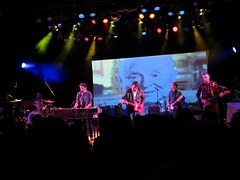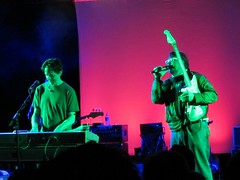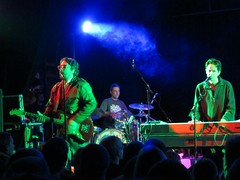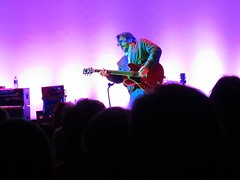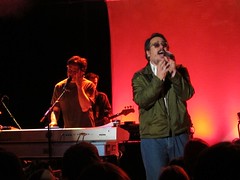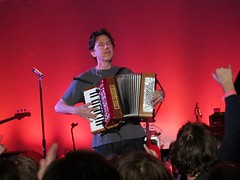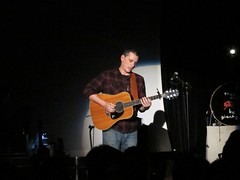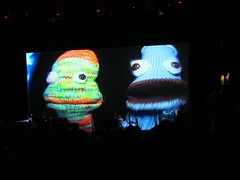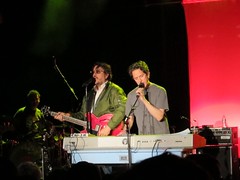The Big Sleep - Ace (from Nature Experiments, coming in early 2012)

The initial chop of staccato guitars sounds almost synth-like. But then Ace quickly takes on a more standard indie rock feel, with a more metered guitar line laid across the chop rhythm. Strong female vocals maintain control even as the chorus' grinding guitars thrash in.
The Big Sleep may a fairly small band, but they know how to effectively layer contrasting guitar lines and control dynamics. From the measured repressed tension of the interlude after the first chorus to wailing builds that threaten to overwhelm the song, Ace is a melange of textures. Indie rock leans towards post rock.
Ace is available for download from The Big Sleep's Facebook page.
James Leg - Do How You Wanna (from Solitary Pleasure)

It was just another party that turned into a jam session in my friend's basement. We'd been wailing away on blues based jams for hours -- the smoke was thick, ears were ringing, and we were all in awe of the powerful groove we were creating. It was a experience captured only by our memories.
James Leg (AKA John Wesley Myers of Black Diamond Heavies) channels his own version on Do How You Wanna. It's a lo-fi blues deconstruction with a grinding rhythm and flailing lead. Like the best garage rock or old school blues, the visceral playing is anchored in the magic of a moment. Leg's battery acid vocals are part Captain Beefheart and part hard ass living.
Pick up a free download here.
Housse de Racket - Chateau (from Alesia)
At its heart, all synth pop aspires to a kind of French ideal. The aloof vocals that cushion a deep inner emotion, the smooth perfection of the music, and the mix of retro cool and modern fashion all conjure a Gallic sense. French duo Housse de Racket willingly show how it's done.
Chateau updates the classic synth pop sound by emphasizing the pop elements. Its dance beat anchors the song, so the slightly moody vine ultimately succumbs to the insistence of the rhythm. Still, the lush synthesizers dress up the beat in fine fashion.
The art house video for Chateau is a great match for the song: full of symbolic static shots, distant actors, and stylized action. Housse de Racket is touring the US next month.







